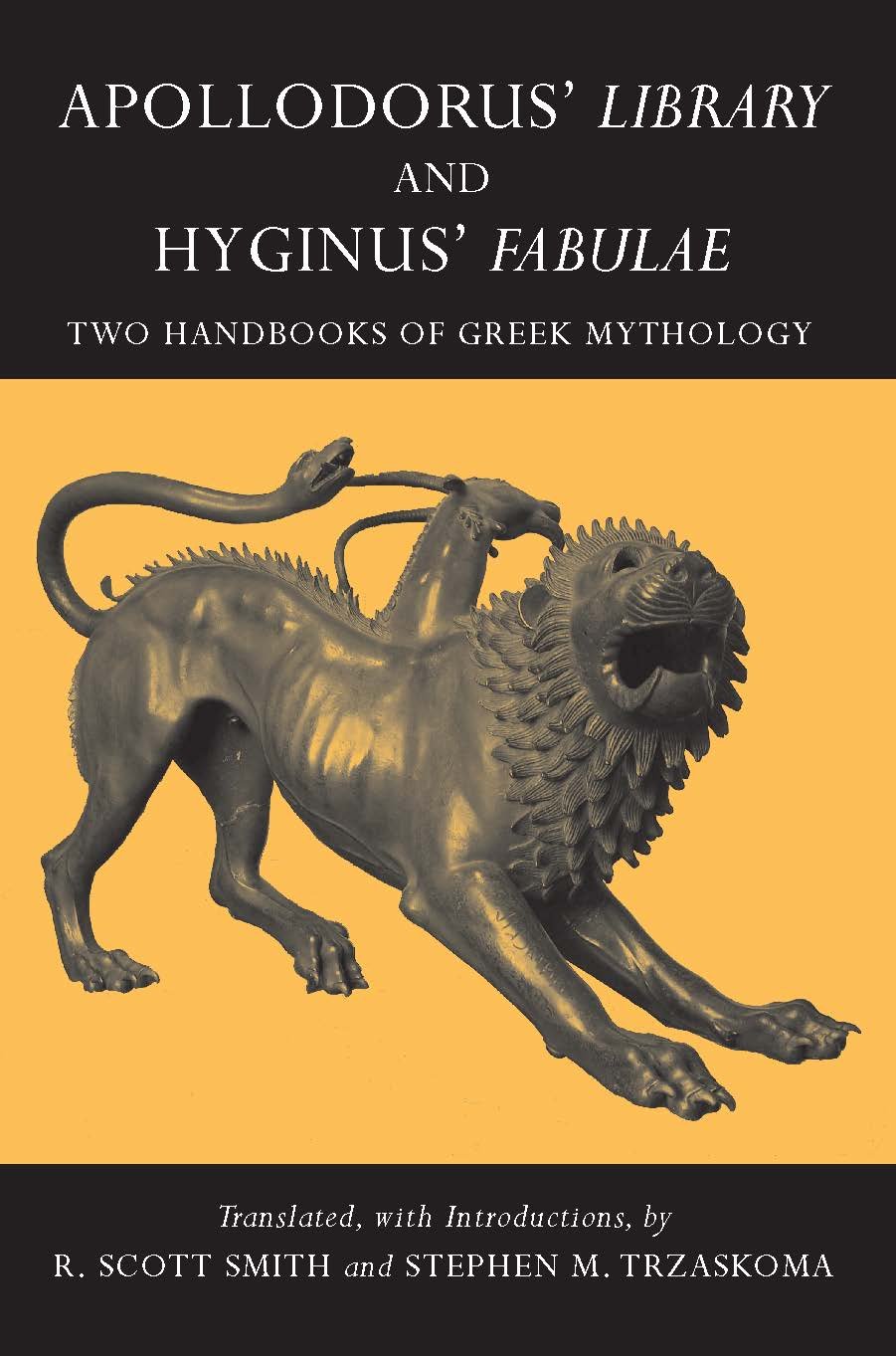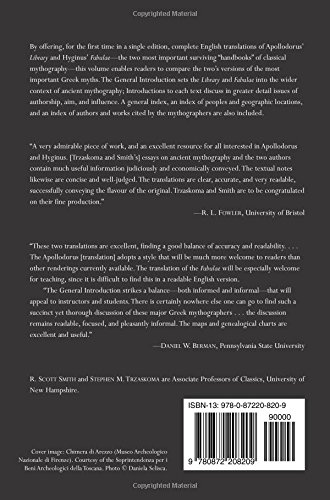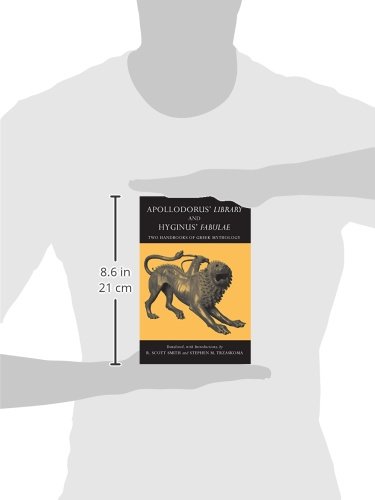



Apollodorus' Library and Hyginus' Fabulae: Two Handbooks of Greek Mythology (Hackett Classics)
M**O
Readable if not enjoyable translations in a single volume
Pros: I like the sizes, font, and the technical stuff. The charts and images are fantastic. The introductory notes are also fantastic. Has a lot of information on said myths. Index and notes have been well done. The translations are quite readable and the content is solid enough.Cons: These are more nitpicks, but I think they could have made a more detailed table of contents. They could have picked something cooler for the cover. They address this I believe but sometimes it just reads a little awkward because in the sources it was like that.Good book if you're interested in Greek/Roman mythologies.
D**Y
This book is worth reading
for the history and timeline of Greek Myth mythographers as well as the for the translation of the myths recorded by Apollodorus and Hyginus.
M**G
Great book!
Easy, and exciting! Just what i wanted!
J**.
Great introduction and VERY helpful- don't skip over it
Great introduction and VERY helpful- don't skip over it. Kind of hard to figure out how the footnote system works. Authors did a great job putting all the material/translations together.
M**.
Great book
Great book, great condition. I never actually read it because I dropped the class it was for, but I will be keeping it for a later read.
M**S
very good product
this is a phenomenal book, very goog paper and diagramation, very good notes and sources. very interesting resource for the mythological searcher
P**S
Five Stars
impeccable
M**R
excellent value
This is the best value book dealing with Apollodorus & Hyginus, I nearly made the mistake of purchasing separately.This book is a "must" if you are into Greek mythology.The Apollodorus section is a complete narrative & covers all the most important myths-but this is obviously his opinion when writing maybe in the 2nd century bce, author & date are still in dispute by scholars. The translation makes this section very readable with extra info being given in the notes.The Hyginus section is not as readable, this is no fault of the translators but due to the text as surviving, is full of info & is more like a reference book. Author, date & original language are still in dispute.The introductions are good & informative, the genealogical charts & maps are very helpful.
L**E
Very nice
Good quality - no issues
M**S
A good study aid
This small volume came in handy when studying a Classics module towards a History degree - recommended.
M**B
Apollodorus' Library and Hyginus' Fabulae
The subtitle of this book is ‘Two handbooks of Greek Mythology.’ You see the film ‘Troy’ and you are curious about what the story is, given that you are also told that the actual story is about something that actually happened. You are also then told, “Oh the film is roughly based on the ‘Illiad’ of Homer.” So you start to read the ‘Illiad’, very good, and while it is a brilliant piece of story-telling, it does not actually tell you much about the story of Troy; and this is where the mythographers come in, telling you for example, the background causes for the war and how Athene and Poseidon happened to be on the Greeks’ side, and mythographers are the primary sources for myth re-tellers, or as the Greeks would have held it, the historians - in the modern use of the term, did not really begin until Herodotus and Thucydides began writing accounts of the wars with Persia.Both the ‘Library’ and the ‘Fabulae’ are collections of the myths of ancient Greece, the former being referred to by a librarian in the 9thc. (AD), and the latter, is probably 2nd c. The sources for these two authors were doubtless older collections, and the 17th.c. Malory presents perhaps a good example of the process – Malory’s ‘King Arthur and his Knights’ is a collation based on Arthurian stories, not only from the Celtic hinterland, but France, Germany, Italy, Spain, and so on. Stories travel, and when they do, adaptions to the local culture take place in all kinds of ways, so the brilliant Parzival (Eschenbach) is quite different from the beautiful Perceval of Chretien des Troyes. The Mythographer, unlike the re-teller, is not concerned with producing something of literary merit, they are primarily interested in the basic elements of structure, interconnectiveness and so on, but even their retellings and summarisings will, inevitably contain a degree of interpretation – something the authors criticise Robert Graves for in his ‘Greek Myths.’While there are decent enough editions of Apollodorus in English, this is the first publication of Apollodorus and Hyginus (known more perhaps as an astrologer). They clearly can be read as either narrative – in the case of Apollodorus, or as pointers for consideration such as Cassandra’s fate not to be believed despite telling the truth – a curse of Apollo, in the case of Hyginus. If one ever wondered how the OT judgement of the ‘sins of the fathers shall be visited upon..’ worked, read the Greek Myths. The other use of this book is as a reference source – there is an excellent name (person and place) index at the end. For anyone interested in how myths works and in particular, how the Greek myths work, this is going to be a welcome addition to their library. I just liked reading it.
Trustpilot
3 days ago
1 day ago